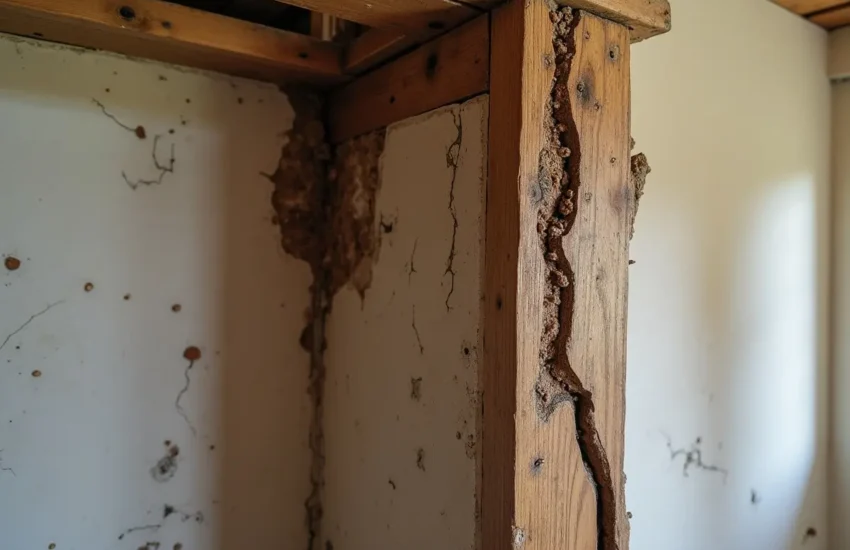What to Expect When Living in an Affordable Housing Community?
Living in an affordable housing community offers a chance to enjoy comfortable living at a manageable cost, but it also comes with its own set of expectations. The goal of affordable housing communities is to ensure that people from low-income families, and essential workers are able to live in safe, stable environments close to jobs, schools, and essential services.
Thus, they’re often limited to individuals and families who meet specific income requirements, often supported by government or nonprofit programs. To help tenants settle in smoothly, Bay Property Management San Antonio Texas can share tips on respecting community rules so you can make the most of your experience.

What Are Affordable Housing Communities
Affordable housing communities are residential developments that provide quality housing at below-market rates for individuals and families with limited or moderate incomes.
These communities can include apartments, townhomes, or single-family units, and rent or purchase costs are typically based on a percentage of a resident’s income, often around 30%. Eligibility is usually determined by income limits set according to local or national standards.
What Qualifies a Property as Affordable Housing
Government or Program Support
A property qualifies as affordable housing when it meets specific criteria set by government housing authorities to ensure that rent or mortgage payments are manageable for low- to moderate-income households.
As a result, government or supported housing programs are what most people imagine when we talk about affordable housing. If a property often receives funding, tax credits, or subsidies from federal, state, or local programs such as the Low-Income Housing Tax Credit (LIHTC), Section 8, or public housing initiatives.
Income Eligibility Limits
Financial experts recommend spending no more than 30% of your gross monthly income on housing costs, including rent and utilities. However, that can be a tall order if you earn well below the average income, affecting your chances of competing with other renters. That’s why affordable housing typically serves those earning between 30% and 80% of the average median income.
Regulated Rent or Sale Prices
Another characteristic of affordable housing is regulated rent sale prices. In other words, your landlord can’t wake up tomorrow and decide to double your rent. Thus, it’s a form of government oversight that ensures that property owners cannot raise prices beyond approved limits, maintaining long-term affordability.
Several states also have rules that properties that start off as Affordable housing developments must remain affordable for a set period. Besides being affordable, a well-managed affordable housing complex encourages community interaction, helping renters build connections with neighbors.
What is the Rent Structure and How Does It Differ from Other Rentals
Income-Based vs. Market Rate
As we highlighted earlier, area median income (AMI) plays a big role in determining who or what qualifies as affordable housing. For example, a 50% AMI property under an affordable housing program may have a maximum monthly rent of $1500.
However, for you to qualify for such housing, you’d need to fall within the specific AMI range your local government or housing authority has set. In some programs, rent is capped at a percentage of the tenant’s income, typically 30% for rent and utilities.
On the other hand, in market-rate rentals, prices are determined by demand, location, and property value, without income consideration.
Government Regulation
Affordable housing rents are capped and reviewed by housing authorities to prevent sudden or excessive increases. Government regulations are designed to make housing costs manageable for low- to moderate-income households. In contrast, private landlords can raise rent freely within local laws.
Stability through Subsidies
Get more stability out of your living arrangement by opting for affordable units that receive government subsidies or tax credits. This arrangement allows property owners to charge tenants less, creating more stable housing costs over time compared to the fluctuations common in market rentals, but then regular rentals depend entirely on tenant payments to cover property costs.
Tenant Rights in Affordable Housing Programs
Right to Fair Treatment
A major concern for residents considering affordable housing is whether they have any rights when compared to renters paying the full market rate. Well, yes, you do. For starters, you have the right to fair treatment.
Tenants cannot be discriminated against based on race, religion, gender, family status, disability, or income source. For this article, the emphasis is on the last point, and this right is enforced by the Fair Housing Act and local housing laws.
Right to Safe and Decent Housing
Another concern tenants often have with affordable housing is the living conditions, because they want to ensure a safe and stable home. To that end, landlords are expected to keep the property in good repair, provide basic utilities, and maintain health and safety standards set by housing authorities.
They also have to respect your right to privacy by giving advance notice before entering your unit, except in emergencies.
Right to Due Process
Also, your landlord cannot evict you without a valid cause. Even in affordable housing, reasons for eviction such as nonpayment of rent or violation of lease terms must follow legal procedures.
This gives you time to get your financial affairs in order to seek alternative accommodation. You can also file complaints with local housing authorities if you face unsafe conditions or unlawful treatment without fear of retaliation.
Conclusion
Living in an affordable housing community provides more than just reduced rent; it also offers stability, fairness, and a pathway to long-term security. As a result, properties qualify through government oversight and structured rent systems that link payment to income, keeping costs predictable and manageable.
Tenants have full rights even though they live in subsidized housing. You also enjoy typical tenant rights, including access to safe living conditions and the assurance of privacy. Now you know what to expect and how to thrive in affordable housing.


